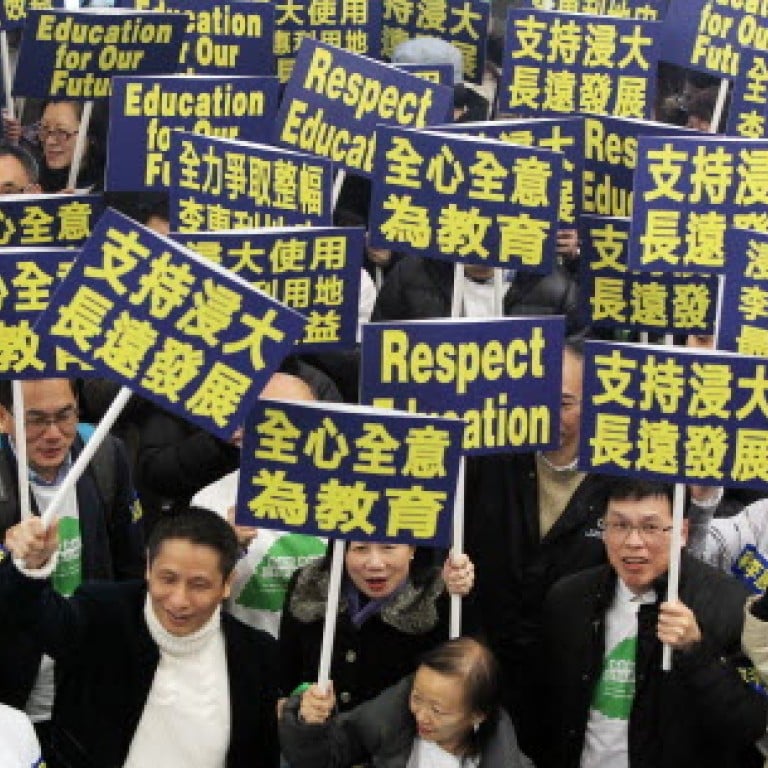
Rezoning delays could thwart government’s plans to boost land supply
A majority of the sites in the government's programme for the coming financial year have yet to be rezoned for residential use
The Hong Kong government faces a challenge in meeting its target for land sales in the coming financial year because a majority of the sites in its Land Sale Programme have yet to be rezoned.
The government has released 34 sites, enough for the building of 15,500 flats, in the upcoming programme. Twenty-one of the sites have not been rezoned for residential use.
In a departure from past practice, the Lands Department did not give an estimate of the earliest date each site would be available.
"It is not certain the government will be able to win planning approval from the town planning board to rezone the sites for residential use and release them for sale in the coming financial year," said Chau Kwong-wing, a professor in the department of real estate and construction at the University of Hong Kong.
As part of its policy to increase land supply, the government began to earmark more sites in the rezoning process for the land sale programme of the current financial year, which started in April last year.

Twenty-two of the 46 residential sites in the land sale programme of the current financial year had yet to complete the rezoning progress when they were released in April last year.
Owing to disputes over land use, the government decided to remove four sites, including the southern portion of Baptist University's former Lee Wai Lee campus in Kowloon Tong and three sites in Tuen Mun, from the land sale programme of the current financial year. A further 10 sites were not ready to be released for sale in the current fiscal year.
The government has achieved its target of 13,600 flats this financial year after some sites were carried forward from the previous financial year and several sites not on the list were readied for sale.
Eddie Hui Chi-man, a real estate professor at Polytechnic University and a member of the Town Planning Board, said it took at least nine months to rezone a site.
"Many sites would take more than a year. For example, the former Lee Wai Lee campus, which is the subject of a dispute, is still in the town planning process after one year," Hui said.
Chau said: "It is not easy for the government to meet its target in the coming fiscal year because town planning is getting politicised. As the sites may touch on the interests of different parties, rezoning provokes objections.
"The government is trying to increase land supply but it is facing many obstacles."
Chau said he did not expect property prices to drop significantly because land supply could not be increased substantially and interest rates would probably stay low in coming years.
"The government will need to maintain its cooling measures using stamp duties for a long period," he said.
To solve the land supply shortage, Chau said the government would have to assign new areas to housing. "In the long term, land reclamation could solve the housing problem. It is easier to carry out because it involves fewer interested parties."

